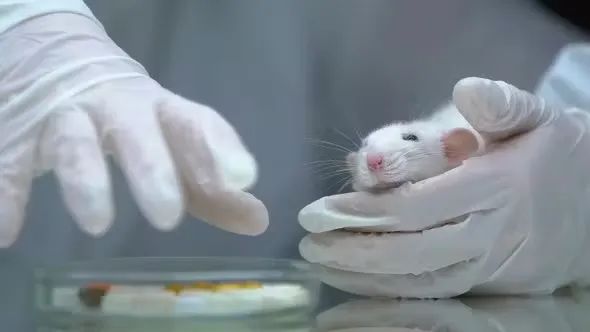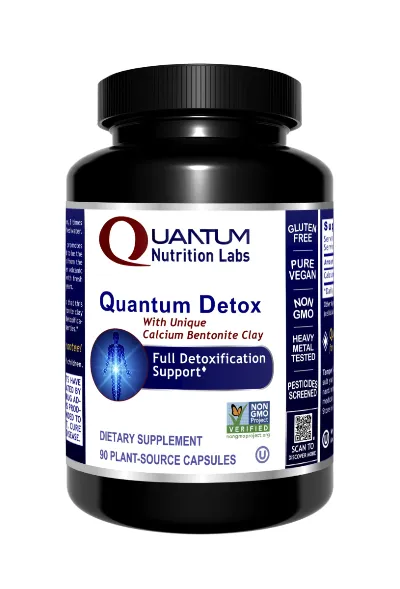Detox your mind from junk science with this one simple trick!
Katrina Borthwick - 1st May 2023
If only it was that simple.
Curiosity is part of the human condition, and we are always seeking out information. We devour it. But the world is overflowing with information, and it is really hard to work out what is worth spending our time on and what is not.
However, I’ve noticed there are a few common themes that keep cropping up. So, I have started to do a bit of Marie Kondo on my feed. Where I have come across media that have continuously transgressed, I have been dropping them from my regular intake so I have more time to read/listen to real stuff.
I dropped a psychology podcast after it mentioned ‘transcendence’ a few too many times for my comfort. I also switched my newsfeed and found I got a whole lot fewer articles, but I really wasn’t missing anything, as most of the old ones were junk or repetitive. So now I spend less time catching up on the news, and have more time for science podcasts (and writing newsletter articles apparently).
The challenge I have set myself is to find some really good sources I enjoy, and drop the ones that just keep feeding me nonsense. Sometimes the other content might be briefly entertaining, but I wasn’t finding it memorable, and I’ve decided to spend my time elsewhere.
I’m guessing as skeptics, we are all doing this in our own way, but figured I’d share the seven warning signs I noticed in case it resonates with anyone else.
1. It’s a little bit too exciting
If something is sounding super good or super bad and has come out of nowhere, it’s probably time to be cautious.
Science is a gradual process. Even big steps are built on small discoveries and technologies along the way, over a long period of time. For example, if a drug does something in a petri dish, or even has an effect on lab mice or zebrafish, there is still a very long way to go before it does anything useful in humans.
Things also don’t tend to pop up from nowhere. For example, if cell phones cause brain cancer, would we really not have noticed this effect at all? Sensational or scary headlines should be cause for concern.
Even articles about actual scientific studies often get it wrong, and journalists may put an exaggerated spin on a research abstract to get attention. They almost always haven’t taken the time to read the original full study. This is a concern because way more people read the articles than the research, and that content spreads much faster. I have lost count of how many times research papers I’m reading reference something as evidence, but when I follow the link to the paper, it’s about something else. And those are published papers, so as you can imagine the problem gets blindingly worse for popular media.
The other one to watch for is speculative language – for example – “this technique could ultimately lead to a cure for Alzheimer’s”. Really? How many steps are there between this study (on rat brains) and something like that. Is that what the study says, or is it something about plaques in a petri dish and they are just using that line to get us interested based on highly speculative future applications?

2. It’s too simple
Perhaps it’s a quick fix. For example, if you eat this one food, you will get smarter/thinner. Meditate 10 minutes a day and improve your life. We solved cancer.
Perhaps it has broad conclusions that ignore individual differences and groups.
Or perhaps it is categorising things into ‘good’ and ‘bad’, which always annoys me. Life’s not actually that simple. For example, there aren’t good and bad foods, there aren’t good and bad medicines. Everything depends on the context, what we are comparing it to, and what we are trying to achieve.
3. It’s anecdotal or an opinion presented as evidence or facts
In an anecdotal piece someone, or several people, will share their experiences or the experiences of people they know. This can get pretty convincing if you read story after story of, for example, people reporting side effects from a vaccine, but it’s not evidence, and it’s not good sampling. You also aren’t going to hear from people who have nothing to report.
Don’t get me wrong, there is a place for stories and opinions, and they can be interesting, but where they are continually presented as evidence or statements of fact, it’s best to steer away from the source.
4. It comes with a philosophy
If you need to buy into a whole ideology or worldview to get the science. It probably isn’t science. If there is a ‘them’ and an ‘us’ and the dialogue is getting personal, then it isn’t helpful to understanding what is truly going on.
Scientific skepticism asks us to test information based on evidence, and be ready to change our mind if new or contradictory evidence arises. This means we don’t have to accept science in giant chunks, we can accept some parts and reject others. For example, we can believe in life elsewhere in the universe, without having to believe we are being visited by aliens. We can also freely choose and change what we believe based on the evidence as it comes to hand, without being caught up in an identity crisis and losing our friends and social connections.
5. It’s selling you stuff
Yup
6. It contains technobabble
I steer away from anything that makes use of fancy ‘sciency’ sounding words and jargon that doesn’t make sense in the context it’s being used. Or at all. While sometimes amusing, it is a pretty sure sign I need to move on.
If it sounds like a Doctor Who episode with an engineering crisis, it’s probably made up. Spatio-temporal hyperlink anyone?
Also, pretty much anything that uses the word ‘quantum’ (if it is not actually about hardcore quantum science), ‘detox’, and most things written on bottles of fancy water.

There are some great examples in this video demonstration conducted by real life skeptics:
7. It’s not yet science
If it is preprint or pre-study, part way through a study, or is based on a tiny or unrepresentative sample, then it isn’t actually science yet, it’s speculation and opinion. This type of material can be easily mistaken for science, and quickly circulated by people who want to push it for whatever reasons.
If it isn’t honestly framing the work as ‘to be done’ very carefully, then the source is questionable. Even where there is a disclaimer, this sort of information should be handled with care. The Ivermectin study was a preprint with a disclaimer, and that didn’t turn out well.
Happy reading/listening everyone 😊
“One of the saddest lessons of history is this: If we’ve been bamboozled long enough, we tend to reject any evidence of the bamboozle. We’re no longer interested in finding out the truth. The bamboozle has captured us. It’s simply too painful to acknowledge, even to ourselves, that we’ve been taken. Once you give a charlatan power over you, you almost never get it back.”
― Carl Sagan, The Demon-Haunted World: Science as a Candle in the Dark